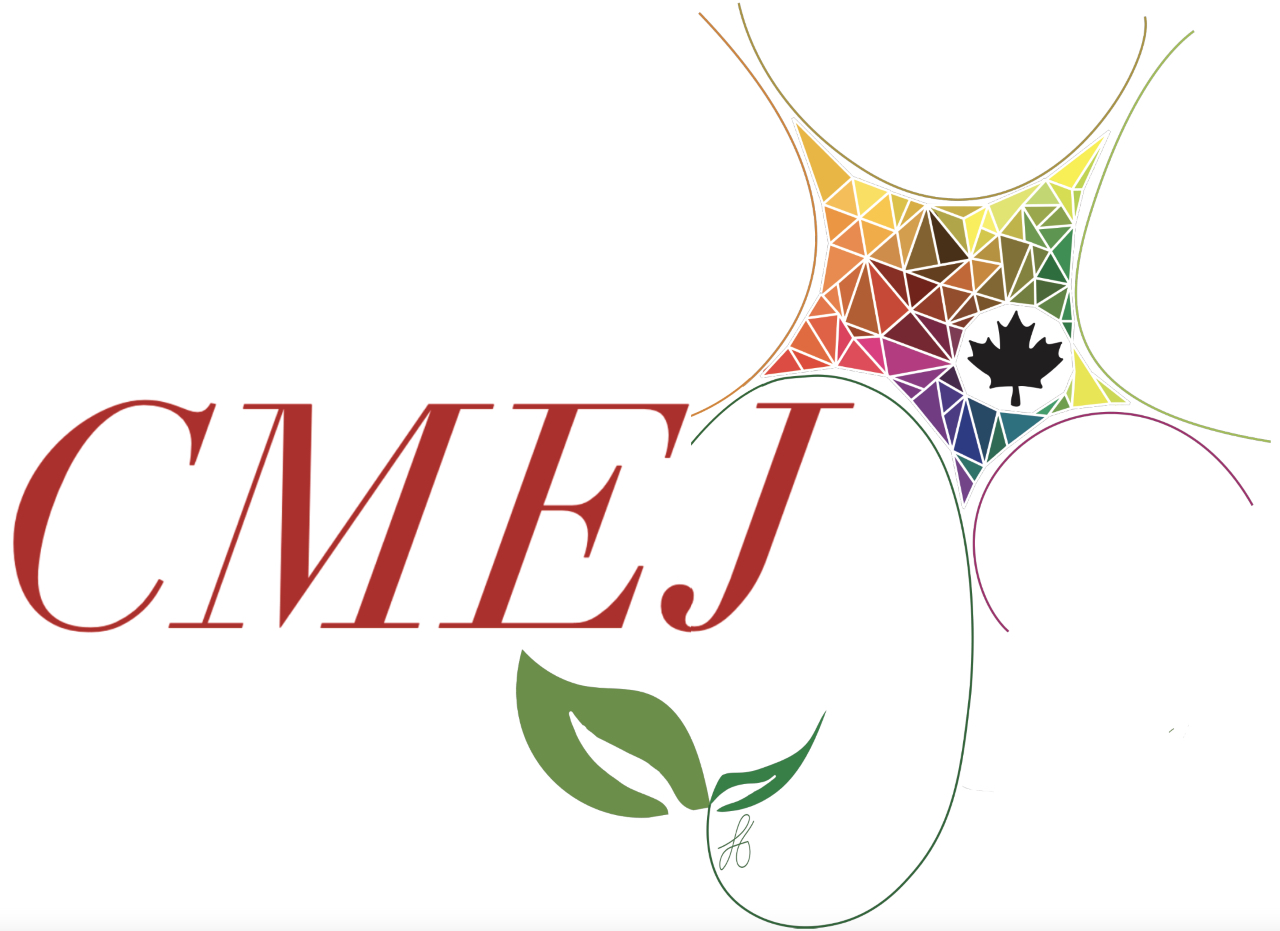Can relaxation exercises improve students’ OSCE grades: a prospective study
DOI:
https://doi.org/10.36834/cmej.77739Abstract
Introduction: OSCE (Objective Structured Clinical Examination) are a means of assessing health profession students. However, they are a source of stress or anxiety for students. The aim of our study was to improve medical students’ performance during OSCEs by using human performance optimization techniques (HPOT).
Methods: Naïve students for OSCE were divided into blocks of five, randomized to HPOT and control groups. Before starting their OSCE circuit, HPOT blocks underwent a 30-minute preparation session. Anxiety was assessed before and after the OSCE using a Visual Analogic Scale (VAS).
Results: We randomized and assigned 206 students to 41 blocks of which 20 were HPOT and 21 were control. Anxiety before the exam was significantly reduced thanks to the HPOT procedure with a median value of six and four on the VAS respectively before and after the relaxation session (p = 0.001). The final exam score was not associated with pre-OSCE anxiety (p = 0.5). The HPOT procedure did not improve the final score (p = 0.4). Interestingly, the final score was inversely correlated with the final median anxiety VAS reading after the exam (p = 0.01): students with the lowest anxiety VAS achieved better scores.
Conclusion: Relaxation, conscious breathing, and positive reinforcement methods reduced students’ anxiety prior to their OSCE; however, these techniques did not improve their scores.
References
1. Patrício MF, Julião M, Fareleira F, Carneiro AV. Is the OSCE a feasible tool to assess competencies in undergraduate medical education? Med Teach. 2013 Jun;356:503–14. https://doi.org/10.3109/0142159X.2013.774330
2. Martin RD, Naziruddin Z. Systematic review of student anxiety and performance during objective structured clinical examinations. Curr Pharm Teach Learn. 2020 Dec;1212:1491–7. https://doi.org/10.1016/j.cptl.2020.07.007
3. Brand HS, Schoonheim-Klein M. Is the OSCE more stressful? Examination anxiety and its consequences in different assessment methods in dental education. Eur J Dent Educ Off J Assoc Dent Educ Eur. 2009 Aug;133:147–53. https://doi.org/10.1111/j.1600-0579.2008.00554.x
4. Ferreira É de MR, Pinto RZ, Arantes PMM, et al. Stress, anxiety, self-efficacy, and the meanings that physical therapy students attribute to their experience with an objective structured clinical examination. BMC Med Educ. 2020 Sep 10;201:296. https://doi.org/10.1186/s12909-020-02202-5
5. Kalantari M, Zadeh NL, Agahi RH, Navabi N, Hashemipour MA, Nassab AHG. Measurement of the levels anxiety, self-perception of preparation and expectations for success using an objective structured clinical examination, a written examination, and a preclinical preparation test in Kerman dental students. J Educ Health Promot. 2017;6:28. https://doi.org/10.4103/jehp.jehp_97_15
6. Bevan J, Russell B, Marshall B. A new approach to OSCE preparation - PrOSCEs. BMC Med Educ. 2019 May 2;191:126. https://doi.org/10.1186/s12909-019-1571-5
7. Braier-Lorimer DA, Warren-Miell H. A peer-led mock OSCE improves student confidence for summative OSCE assessments in a traditional medical course. Med Teach. 2021 Nov 25;1–6. https://doi.org/10.1080/0142159X.2021.2004306
8. Young I, Montgomery K, Kearns P, Hayward S, Mellanby E. The benefits of a peer-assisted mock OSCE. Clin Teach. 2014 Jun;113:214–8. https://doi.org/10.1111/tct.12112
9. Mojarrab S, Bazrafkan L, Jaberi A. The effect of a stress and anxiety coping program on objective structured clinical examination performance among nursing students in shiraz, Iran. BMC Med Educ. 2020 Sep 14;201:301. https://doi.org/10.1186/s12909-020-02228-9
10. Facco E, Stellini E, Bacci C, et al. Validation of visual analogue scale for anxiety (VAS-A) in preanesthesia evaluation. Minerva Anestesiol. 2013 Dec;7912:1389–95.
11. Rossi V, Pourtois G. Transient state-dependent fluctuations in anxiety measured using STAI, POMS, PANAS or VAS: a comparative review. Anxiety Stress Coping. 2012 Nov;256:603–45. https://doi.org/10.1080/10615806.2011.582948
12. Fay MP, Proschan MA. Wilcoxon-Mann-Whitney or t-test? On assumptions for hypothesis tests and multiple interpretations of decision rules. Stat Surv. 2010;4:1–39. https://doi.org/10.1214/09-SS051
13. Lilot M, Evain JN, Bauer C, et al. Relaxation before debriefing during high-fidelity simulation improves memory retention of residents at three months: a prospective randomized controlled study. Anesthesiol. 2018 Mar;1283:638–49. https://doi.org/10.1097/ALN.0000000000002045
14. Sigwalt F, Petit G, Evain JN, et al. Stress management training improves overall performance during critical simulated situations: a prospective randomized controlled trial. Anesthesiol. 2020 Jul;1331:198–211. https://doi.org/10.1097/ALN.0000000000003287
15. England BJ, Brigati JR, Schussler EE. Student anxiety in introductory biology classrooms: perceptions about active learning and persistence in the major. PloS One. 2017;128:e0182506. https://doi.org/10.1371/journal.pone.0182506
16. Longyhore DS. Pharmacy student anxiety and success with objective structured clinical examinations. Am J Pharm Educ. 2017 Feb 25;811:7. https://doi.org/10.5688/ajpe8117
17. Stewart RA, Hauge LS, Stewart RD, et al. A CRASH course in procedural skills improves medical students’ self-assessment of proficiency, confidence, and anxiety. Am J Surg. 2007 Jun;1936:771–3. https://doi.org/10.1016/j.amjsurg.2007.01.019
Downloads
Published
How to Cite
Issue
Section
License
Copyright (c) 2025 Damien Massalou, Jérôme Doyen, Fabien Almairac, Pierre-Simon Rohrlich, Jean-Paul Fournier, Clair Vandersteen, Nirvana Sadaghianloo

This work is licensed under a Creative Commons Attribution-NonCommercial-NoDerivatives 4.0 International License.
Submission of an original manuscript to the Canadian Medical Education Journal will be taken to mean that it represents original work not previously published, that it is not being considered elsewhere for publication. If accepted for publication, it will be published online and it will not be published elsewhere in the same form, for commercial purposes, in any language, without the consent of the publisher.
Authors who publish in the Canadian Medical Education Journal agree to release their articles under the Creative Commons Attribution-Noncommercial-No Derivative Works 4.0 Canada Licence. This licence allows anyone to copy and distribute the article for non-commercial purposes provided that appropriate attribution is given. For details of the rights an author grants users of their work, please see the licence summary and the full licence.










